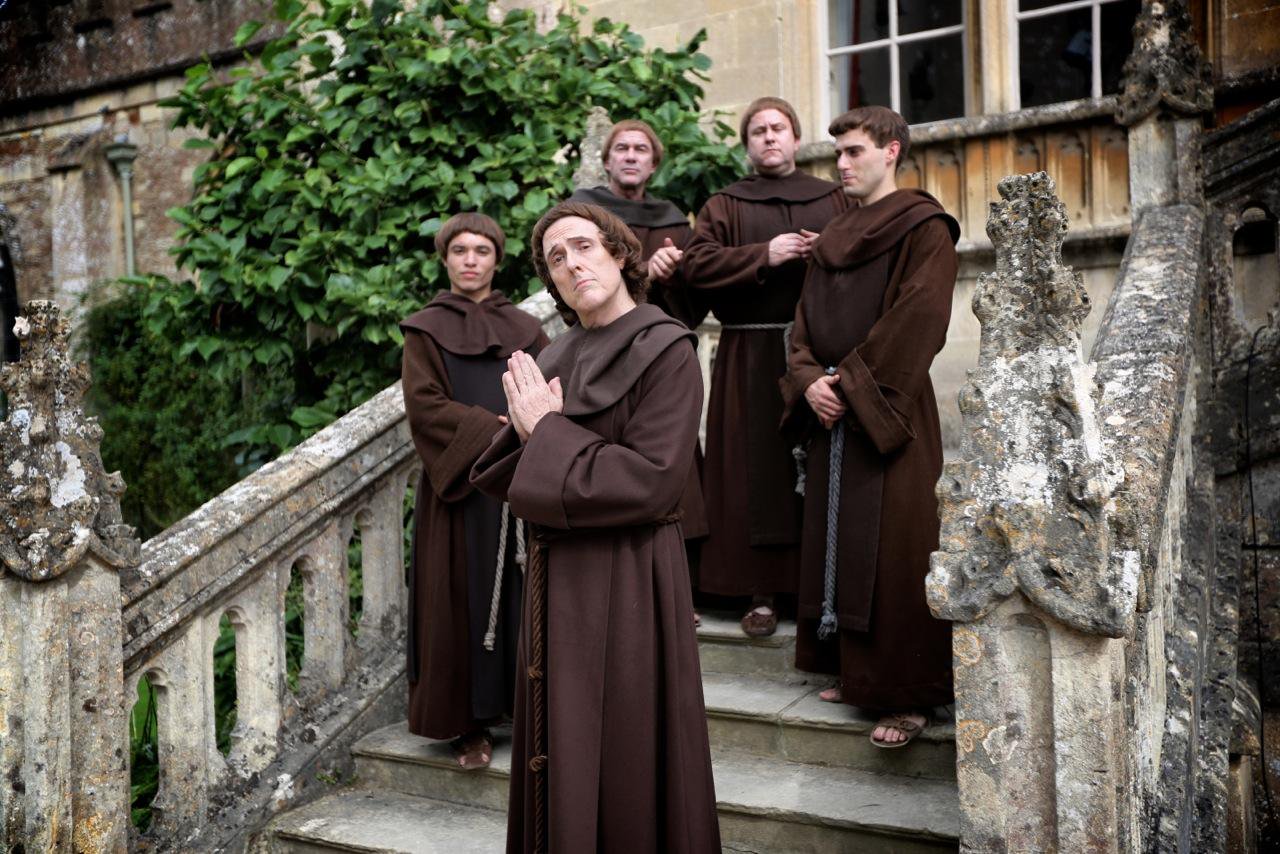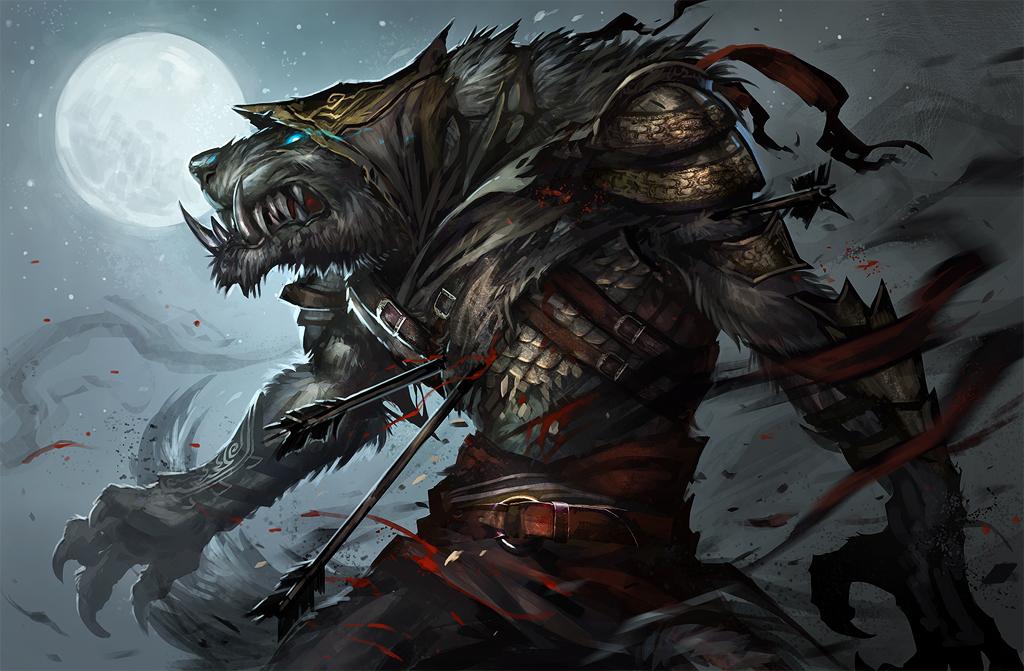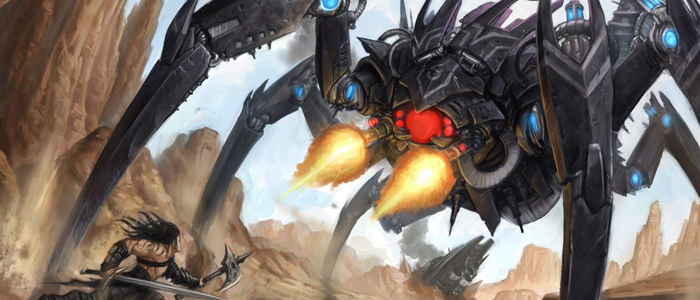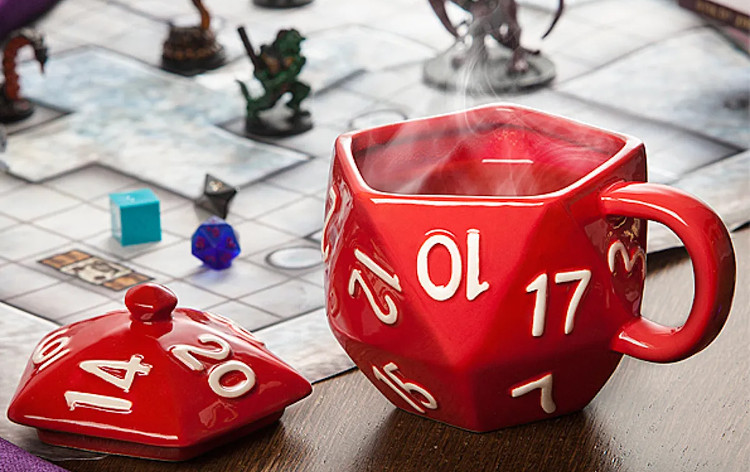Fantasy RPGs and the fiction they are based on are called fantasy because of the unimaginable stories they tell. But in the century and a half since the 1858 publication of George MacDonald’s Phantastes, considered the first fantasy novel, our imaginations have matured. We’ve grown up on Tolkien, Baum, and Rowling. Movie making techniques have advanced to the point that no story is considered unfilmable. RPGs, board games, and video games have all turned the otherworldly into worldly rules and code than the Earthly can understand. If what was once fantasy is now familiar, how do we as GMs inspire awe in our games?
Make them weird.
In Behind The Screens, Ryan Costello offers advice, ideas, and insight for the Pathfinder GM. He deconstructs popular GMing advice to account for different styles and motivations of Game Masters and players. Afterall, everyone games in different ways for different reasons.
What Is Weird?
Uh… according to Google Dictionary:
weird /wird/
adj. suggesting something supernatural; uncanny.
n. archaic (Scottish) a person’s destiny.
v. induce a sense of disbelief or alienation in someone.
That’s unexpected. I thought it meant unexpected, a former pejorative that’s taken on a positive meaning in recent years. Supernatural? Destiny? A verb? Like, I never thought of Mr Yankovich as “Uncanny Al”. Although if that’s what he was going for, I’d have suggested “SupernturAl”.
Thanks for setting the weird tone, Google Dictionary.
Well, when I say make it weird, I mean do something unusual, unexpected. Give your players an experience they’ve never felt before.
Why?
Weird = Wonder
This genre is built on experiencing the impossible, of stepping out of our black and white farmhouse into a world of rich colours. How much less satisfying would The Wizard of Oz have been if after saying “I’ve a feeling we’re not in Kansas anymore,” Dorothy cast plane shift? Even if she had that power, surely Dorothy would have held off casting it to explore this seemingly unthreatening other world she’s dropped into. Even if it’s not her end goal, it’s too interesting to ignore.
Wonder = Engagement
In a game where your players’ characters each have a suite of powers to interact with different situations, it’s important to remind them that there are situations that they can engage with on a personal level (to their characters), no powers required.
I do not relate to that GM. That is a comic about a group of players paying attention, interacting with a person your brain sent to there’s. This is a GM succeeding at GMing and getting frustrated about it for some reason.
Engagement = Brain On!
When your players engage with something in your game, you’ve got them! The imaginary world you’re projecting means more to them than their cell phones, snacks, even the rulebooks. The game rules take their proper position of facilitators of this shared storytelling experience.
How?
Start Early
The sooner you introduce an idea that makes a player go “what?” (for reasons other than not paying attention) the sooner your players are thinking about the world you are bringing them int. The more they interact with something in your world, the more they are their character in your world and not a player at your table.
Mimips 11 starts with a journey through a bizarre extra planar mansion into a ring in a field called the Ramshircle. This is one weird thing after another that got my players wondering “what is happening?” Because it was intentionally weird, they weren’t asking one another, player to player, they were in character trying to grasp what they were experiencing.
Change One Thing
The setting of our Explore & Encounter adventure needed to be a farm, but it was a last minute change to make it a yak farm. That small change turned yaks from something not talked bout on the network to something I am synonymous with to our listeners. Evidence: Did you know which adventure I was talking about when I said “Explore & Encounter” or did it take you until “yak”? Further evidence: Perram designed the banner with no art direction from me.
Go Outside the Rules
If there are rules for it, odds are someone at your table gets it. Ever receive one reaction describing a monster, but then lose it in favour of indifference as soon as you mention the creature’s name. That’s because there is a tendency among people who consider the math fights aspect of tabletop RPGs to recall rules as soon as there is a contextual cue to do so. The longer you can keep your rules-minded players guessing, the longer your story-minded players have reign over your playground. If all goes well, your rules-minded players take the opportunity to tap into the story side of their brain.
The Legend of Your Campaign
Let’s say one of your players goes to PaizoCon and talks about your campaign. How would they describe it? Especially if you are running a canned campaign. What would make your version of Rise of the Runelords “the yak adventure”? When you are making decisions about your setting, descriptions, NPC voices, think about where your instinct goes and ask yourself if that’s memorable. If I asked you if you remember Alpha from Pixar’s Up, would you remember him as the Doberman Pinscher, or the Doberman Pinscher with the high-pitched voice? Did you even remember who Alpha was before I mentioned his high-pitched voice?
In Conclusion
Imagination. Creativity. Invention. Originality. All of the things that made fantasy the genre is was could be described as embracing the weird. A piece of jewelry than makes a wizard shudder? Trees offended when you pick their fruit? The more familiar you are with fantasy, the more you take for granted how stranger its foundation once seemed.
Every two weeks, Ryan Costello uses his experience as a Game Master, infused with popular culture references, to share his thoughts on best GMing practices to help his fellow GMs. Often deconstructing conventional wisdom and oft repeated GMing advice, he reminds his fellow GMs that different players play the game in different ways, and for different reasons.







By the transitive property, Weird == Brain On! And I love “weird.” Wyrd was an Anglo-Saxon goddess of Fate. Something strange or seemingly supernatural might happen so the people would say, “Oh that’s Wyrd,” which is how the phrase came to us eventually. So basically, have your Goddess of Fate mess with your players at every turn!